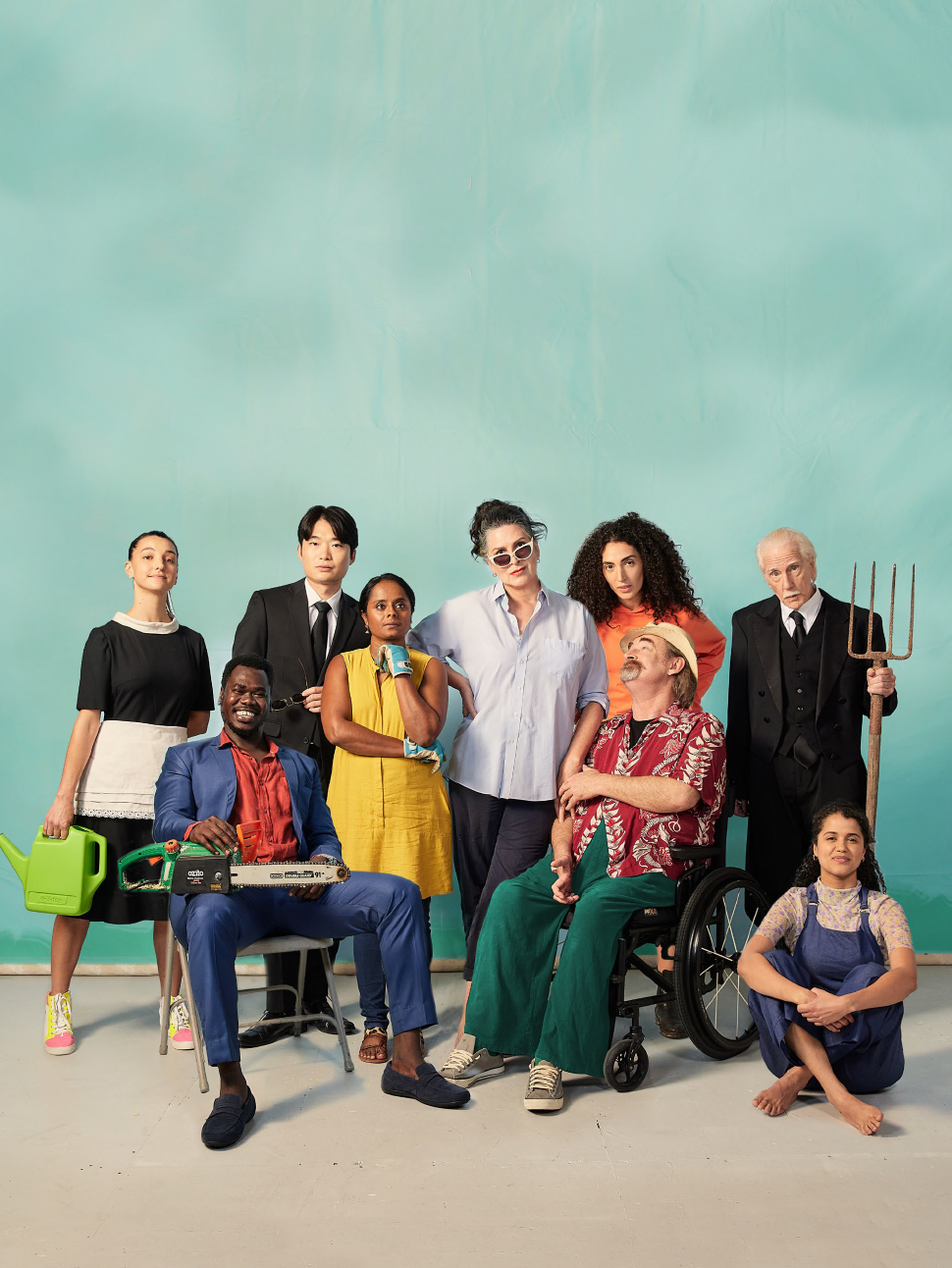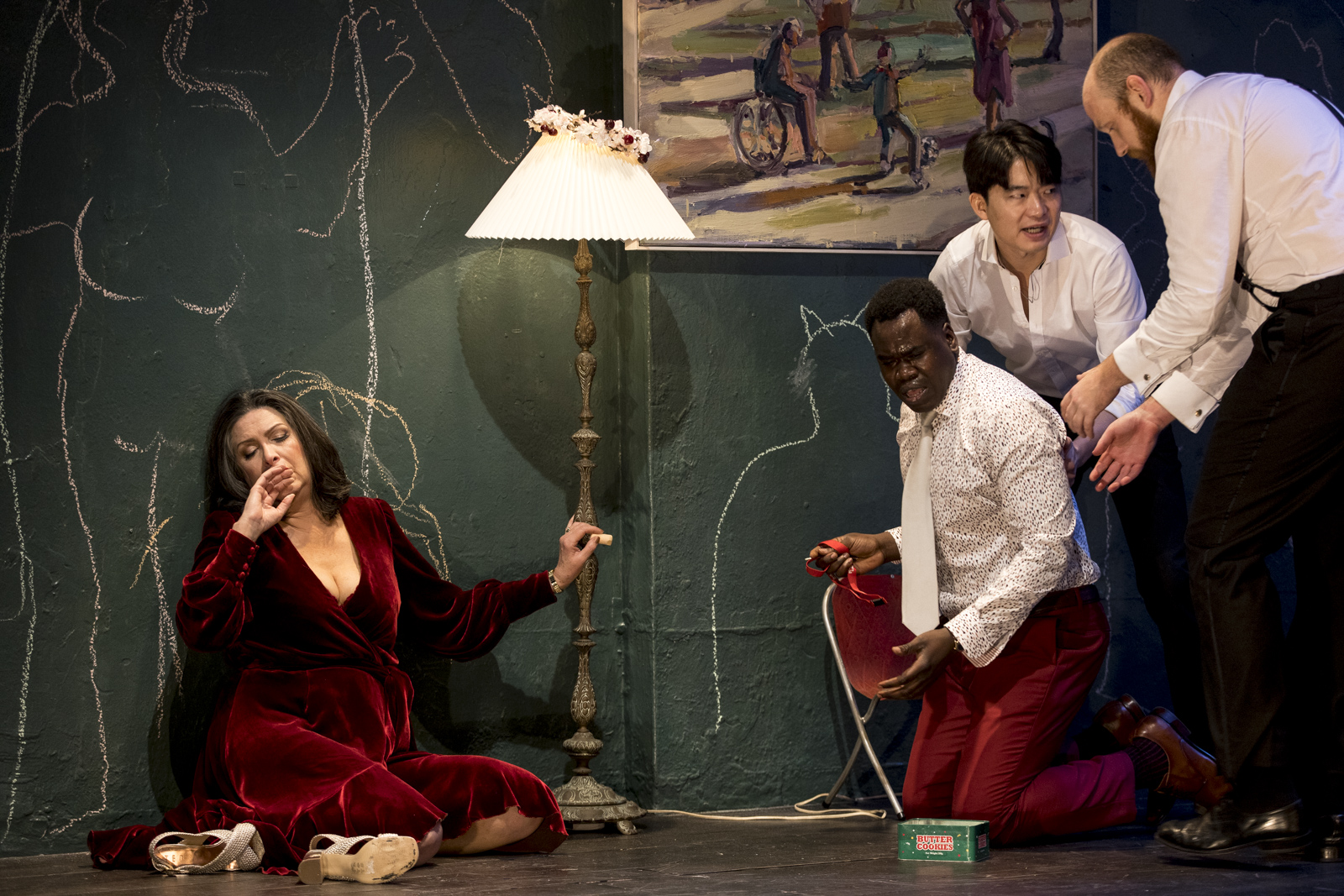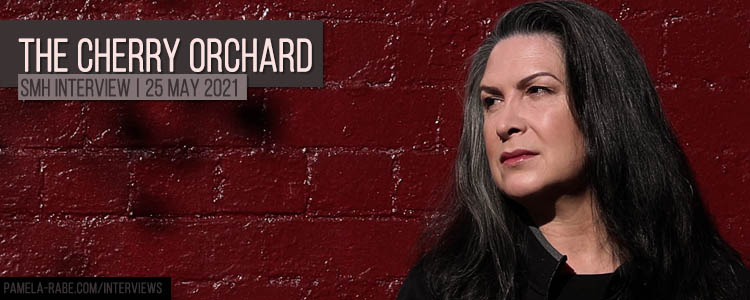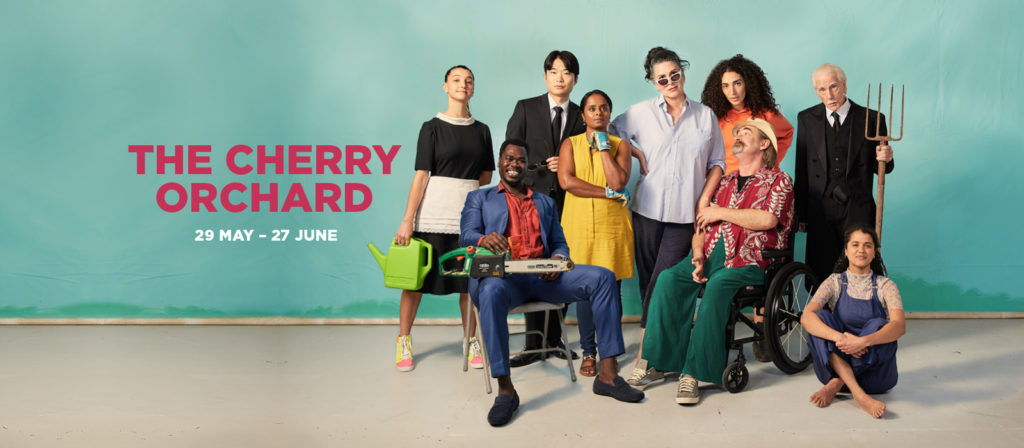A homecoming. A picnic. A party. A leavetaking.
It’s an uncertain time. Change is coming, you can sniff it in the air.
A family returns to a home that’s seen better days – but it still has its orchard. Precious, beautiful, but…in the way.
Chekhov’s great, last play needs no embellishment to describe our times. What orchards are we cutting down? What orchards are we planting?
Pamela Rabe leads a large cast from today’s Australia, in a classic as funny as it is profound. This promises to be one of the highlights of 2021.
I’ve wanted to do this for years. With a richly talented gang of actors and after the year we’ve all lived through…it’s time for this beautiful, celebratory, moving play. – Eamon Flack
Supported by the Chair’s Circle.

The Cherry Orchard is a play about a way of life that has come to an end. It is a way of life driven by a generations-long dream of leisure, property, art, love, family, comfort, the regular cycle of the seasons – all the old fantasies of liberalism. In itself it is a beautiful life, but it is not sustainable.
It was founded on the exploitation of labour and the natural world, and prolonged itself on debt. Its end has arrived before the play even begins. The task for the characters is not to save what cannot be saved, but to find a new way to live.
The question is, how? How do we change? Can we? Will we? When will it be too late? This description of Chekhov’s play could also be a description of Australia, or of life in the carbon economy, or the Anthropocene… Is our way of life sustainable? Is the end already here and we haven’t realised it yet? What of this way of life will we be able to carry with us into the future? How do we break old patterns? How do we create new ones? Chekhov gives us no easy answers. He knows he can’t say where the path of change ends up, but he does suggest that it goes by way of grief, madness and joy. Whatever else change is, it is not rational. It’s not clear how much control we have over it, even on the scale of a single family estate, let alone a whole country or a whole economic system.The only certainty in this play is death. Whichis a bleak thought. To be fair, Chekhov was dying of tuberculosis as he wrote it. But, like its writer, what animates this play is not doom but a reckless love of life. Chekhov’s final wish as he lay dying was a last glass of champagne. His life had been an astonishing one (and fragments of
it are shot through the play): grandson of a serf and son of a violent drunk; worked as a tutor; supported his family and paid his way through medical school by writing comic sketches; worked as a doctor throughout his life; founded medical clinics and schools; loved to fish; became, after Tolstoy, the most loved Russian writer of his day; took a year out at the height of his fame to travel to and report on Russia’s most brutal penal colony; revolutionised not one but two art forms – the short story and the play – all before he died at the age of 44, a few months after the premiere of The Cherry Orchard.
Chekhov found that first production at the Moscow Arts Theatre a real downer. He called his play a comedy and he meant it. But few comedies have the capacious vision of humans adrift in the world that this one does. (Shakespeare’s As You Like It is the only other one I can think of.) Chekhov perhaps meant “comedy” in the sense that Dante did – a sprawling vision of humans chained to their foibles for eternity – but it would be uncharacteristic of him to make such a large claim. I think he simply meant that that the smallness of humans is made funnier, not bleaker, by the enormity of time and existence. His ability to simultaneously work on the scale of pettiness, and the scale of historic obliteration is what gives this comedy a weird and sometimes troubling power.*
What about hope? Charles Wu who plays Yasha asked this early in rehearsals. (I’ve asked this outside rehearsals, too: If we can’t even bother to vaccinate ourselves, which is really just a form of national tooth-brushing, what hope is there on larger fronts?) The hope, I think, unexpectedly lies in the human pettiness. We must work, it’s true. But we must also waste time. We must also play. We must also live. Getting tangled up in the birdbrained patterns of our species is what keeps us together and bound to life. We are each other’s balast in the vastness, like it or not. This was Chekhov’s last gift. Not a grim hymn to mortality, but a joyous dance of folly.
Chekhov gives us no easy answers. He knows he can’t say where the path of change ends up, but he does suggest that it goes by way of grief, madness and joy. Whatever else change is, it is not rational. It’s not clear how much control we have over it, even on the scale of a single family estate, let alone a whole country or a whole economic system.The only certainty in this play is death. Whichis a bleak thought. To be fair, Chekhov was dying of tuberculosis as he wrote it. But, like its writer, what animates this play is not doom but a reckless love of life. Chekhov’s final wish as he lay dying was a last glass of champagne. His life had been an astonishing one (and fragments of
it are shot through the play): grandson of a serf and son of a violent drunk; worked as a tutor; supported his family and paid his way through medical school by writing comic sketches; worked as a doctor throughout his life; founded medical clinics and schools; loved to fish; became, after Tolstoy, the most loved Russian writer of his day; took a year out at the height of his fame to travel to and report on Russia’s most brutal penal colony; revolutionised not one but two art forms – the short story and the play – all before he died at the age of 44, a few months after the premiere of The Cherry Orchard.
Chekhov found that first production at the Moscow Arts Theatre a real downer. He called his play a comedy and he meant it. But few comedies have the capacious vision of humans adrift in the world that this one does. (Shakespeare’s As You Like It is the only other one I can think of.) Chekhov perhaps meant “comedy” in the sense that Dante did – a sprawling vision of humans chained to their foibles for eternity – but it would be uncharacteristic of him to make such a large claim. I think he simply meant that that the smallness of humans is made funnier, not bleaker, by the enormity of time and existence. His ability to simultaneously work on the scale of pettiness, and the scale of historic obliteration is what gives this comedy a weird and sometimes troubling power.*
What about hope? Charles Wu who plays Yasha asked this early in rehearsals. (I’ve asked this outside rehearsals, too: If we can’t even bother to vaccinate ourselves, which is really just a form of national tooth-brushing, what hope is there on larger fronts?) The hope, I think, unexpectedly lies in the human pettiness. We must work, it’s true. But we must also waste time. We must also play. We must also live. Getting tangled up in the birdbrained patterns of our species is what keeps us together and bound to life. We are each other’s balast in the vastness, like it or not. This was Chekhov’s last gift. Not a grim hymn to mortality, but a joyous dance of folly.
*Chekhov’s ability to work beyond the human scale is rare in modern writers – probably because theatre for the last few hundred years has mostly been about people in rooms. This is only natural, given that the great shift of modern times was the discovery that the fates of large numbers of people could be determined not by the hand of some
god on the field of battle or agriculture, but by the decisions taken by human beings in private rooms. That’s what we mean when we say theatre as we know it today is a humanist art form. The problem now, in the Anthropocene, is that the modern habit of ruling our fates through decisions taken in
rooms is blinding us to the chaos at play out in the world, in particular the wild, broken patterns of the climate. This poses a problem for the arts, which largely continue on in the humanist forms they have evolved into over the past few hundred years. If we are going to make art in the Anthropocene, we need to figure out ways to see humans inside bigger frames of reference than ourselves and our rooms. This problem has been on my mind as we’ve worked on this play, as Chekhov’s intimations of a frame of view larger than the human might offer some hints for how the forms of our stories might adapt to the new reality we are now living in… I put all this in a footnote because, as with everything related to climate change, all bets are off, and we are still learning to see what is in front of us, let alone propose a confident path forward…Source: Belvoir daybill
 Click the pic above to read the interview
Click the pic above to read the interview
PHOTOS
Photos by Daniel Boud, Janie Barrett

 Click the pic above to read the interview
Click the pic above to read the interview